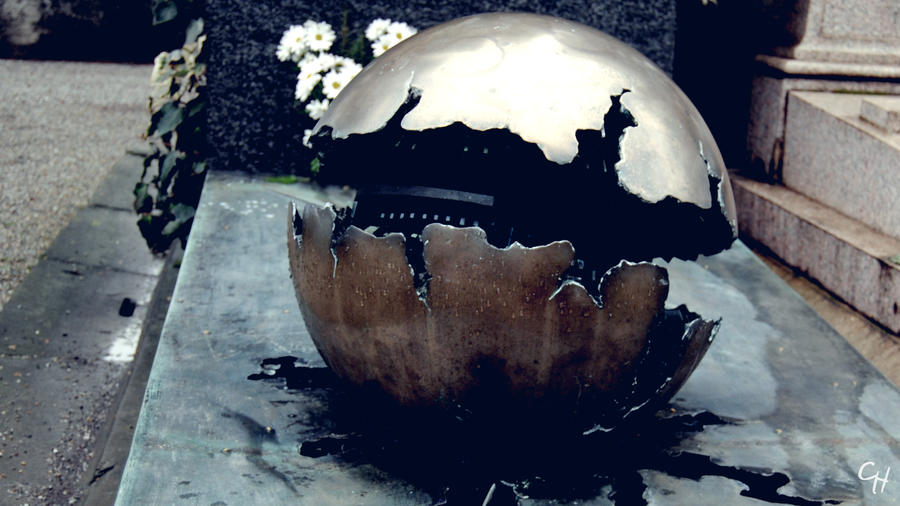
As a liberal arts major, I have grown quite accustomed to
hearing
But, for the most part, asking me "what can you do with that?" means: what job does that degree prepare you for? And, to be perfectly honest, my liberal arts degree does not prepare me for a job. Honestly, my liberal arts degree teaches me how to live.
To the modern mind, my answer sounds poetic, expensive, and strangely impractical.
How to live? Isn't that what life in general teaches you? Why pay thousands of dollars on a formal education consisting of philosophy, theology, and literature when you can get a technical degree that practically guarantees a job, salary, and financial stability?
 The answer, I think, is that most of our modern, industrialized, money-driven world has a pretty narrow vision of what education is supposed to actually accomplish. Almost everyone nowadays knows about the importance of work. Many families have both mother and father putting in long hours at full time jobs just to make ends meet. Millions of dollars are poured into research facilities to create the newest technology and machinery. Dietrich von Hildebrand writes: "Modern life, with its haste and its hurry, its inner impatience which no longer leaves time for an event to develop from within - all this has devalued the person." (1) We hear so much about high grades, standardized testing, real-world experience, and sought-after skills. Jobs, careers, research, solutions, advancement, money. Progress.
The answer, I think, is that most of our modern, industrialized, money-driven world has a pretty narrow vision of what education is supposed to actually accomplish. Almost everyone nowadays knows about the importance of work. Many families have both mother and father putting in long hours at full time jobs just to make ends meet. Millions of dollars are poured into research facilities to create the newest technology and machinery. Dietrich von Hildebrand writes: "Modern life, with its haste and its hurry, its inner impatience which no longer leaves time for an event to develop from within - all this has devalued the person." (1) We hear so much about high grades, standardized testing, real-world experience, and sought-after skills. Jobs, careers, research, solutions, advancement, money. Progress.
So little about truth, goodness, beauty and, most especially, to what end we are living.
Traditionally understood, the liberal arts belonged to the free
To the modern mind, my answer sounds poetic, expensive, and strangely impractical.
How to live? Isn't that what life in general teaches you? Why pay thousands of dollars on a formal education consisting of philosophy, theology, and literature when you can get a technical degree that practically guarantees a job, salary, and financial stability?
 The answer, I think, is that most of our modern, industrialized, money-driven world has a pretty narrow vision of what education is supposed to actually accomplish. Almost everyone nowadays knows about the importance of work. Many families have both mother and father putting in long hours at full time jobs just to make ends meet. Millions of dollars are poured into research facilities to create the newest technology and machinery. Dietrich von Hildebrand writes: "Modern life, with its haste and its hurry, its inner impatience which no longer leaves time for an event to develop from within - all this has devalued the person." (1) We hear so much about high grades, standardized testing, real-world experience, and sought-after skills. Jobs, careers, research, solutions, advancement, money. Progress.
The answer, I think, is that most of our modern, industrialized, money-driven world has a pretty narrow vision of what education is supposed to actually accomplish. Almost everyone nowadays knows about the importance of work. Many families have both mother and father putting in long hours at full time jobs just to make ends meet. Millions of dollars are poured into research facilities to create the newest technology and machinery. Dietrich von Hildebrand writes: "Modern life, with its haste and its hurry, its inner impatience which no longer leaves time for an event to develop from within - all this has devalued the person." (1) We hear so much about high grades, standardized testing, real-world experience, and sought-after skills. Jobs, careers, research, solutions, advancement, money. Progress. So little about truth, goodness, beauty and, most especially, to what end we are living.
Traditionally understood, the liberal arts belonged to the free
man as an end in themselves, to be studied for their own sake. The knowledge and living out of these truths was considered a fuller expression of true humanity. An education in liberal arts was not considered job training, but life training. The liberal arts seek the source of truth. It takes leisure to know, contemplate, and seek the truth. The understanding of disciplines like philosophy and theology is not a material end. They are no meant for temporal production or gain, but rather, for our understanding of an eternal vision.
We need a true end for which to live: an end that shapes lives,
cultures and persons. We must live in the truth of reality, while becoming more creative, more original, and more uniquely ourselves.
 The liberal arts can introduce students not only to many disciplines, but also to many different thinkers who each have something unique to teach us about reality. For example, Plato teaches me how I am composed of body and soul. Bonaventure teaches me of the beauty of perceiving God in creation. The poet Milton illustrates a picture of Heaven and Hell: the constant struggle of the human heart between good and evil. Augustine teaches me what the state's relationship with the individual ought to be. I learn to ask myself questions like: how is the human person's dignity honored? Who is God? How can I have a deeply personal relationship with the Alpha and Omega? How does religion influence a culture? How can I help piece back together a fragmented world?
The liberal arts can introduce students not only to many disciplines, but also to many different thinkers who each have something unique to teach us about reality. For example, Plato teaches me how I am composed of body and soul. Bonaventure teaches me of the beauty of perceiving God in creation. The poet Milton illustrates a picture of Heaven and Hell: the constant struggle of the human heart between good and evil. Augustine teaches me what the state's relationship with the individual ought to be. I learn to ask myself questions like: how is the human person's dignity honored? Who is God? How can I have a deeply personal relationship with the Alpha and Omega? How does religion influence a culture? How can I help piece back together a fragmented world? I can see value. I encounter it and respond.
By being the best version of myself, I can enter into dialogue with the great minds. I can think for myself. I can express my thoughts in writing and articulate them in speech. I don't have to zone out in front of my laptop for hours on end to enjoy quality leisure. My education extends to how I have fun: I enjoy dancing, singing and painting. I can travel and immerse myself in the world of nature. I have opened my eyes to truth, and it enables me to see. I am conscious of my past, my purpose, and my end in light of this truth.
Don't get me wrong. I plan on getting a "real job." And, of course, we need nurses, lawyers, technicians, and doctors in our society. By all means, young students ought to prepare for those careers. However, I think it is absolutely critical that we keep alive the tradition of the liberal arts in our society, even within those specific careers. In the midst of our contributions to society in our work, we need to remember who we are as spiritual and intellectual persons. We need to foster a spirit of wonder, beauty and learning for its own sake. It makes life meaningful.
 Don't sell yourself short by buying into the lie that making money and working hard constitute the sole purpose of your life. Work to live, never live to work. Seek faith, find it, and delight in the joy that it brings.
Don't sell yourself short by buying into the lie that making money and working hard constitute the sole purpose of your life. Work to live, never live to work. Seek faith, find it, and delight in the joy that it brings. Learning how to live well is a lifelong journey; it takes patience, discipline and hard work. The liberal arts have helped me to understand that right living is one heck of an adventure. Don't settle for anything less than a spectacular, wonder-filled life. After all, you only live once.
Quote:


1 comments
Thank you. Sharing with my home schooling son and daughter-in-law.
ReplyDeleteNote: Only a member of this blog may post a comment.